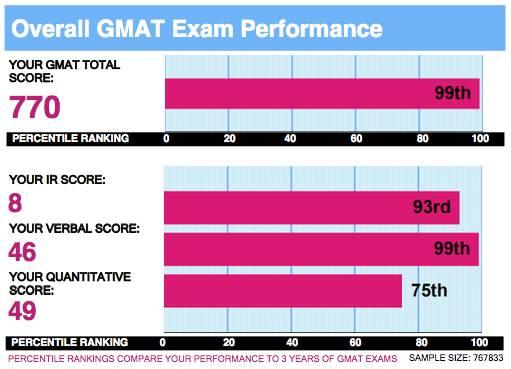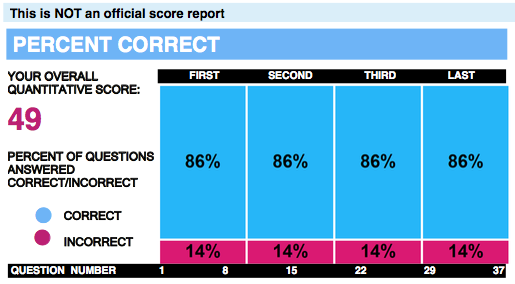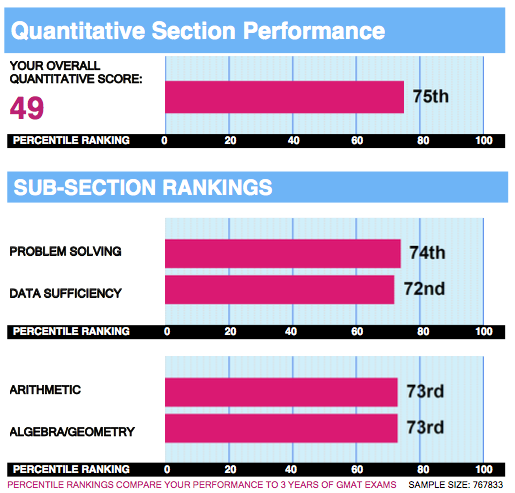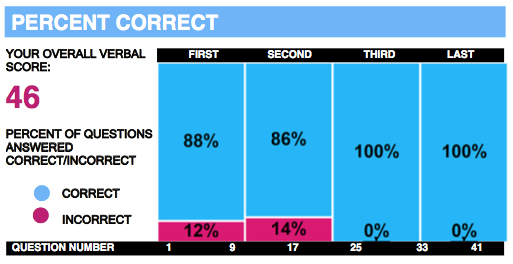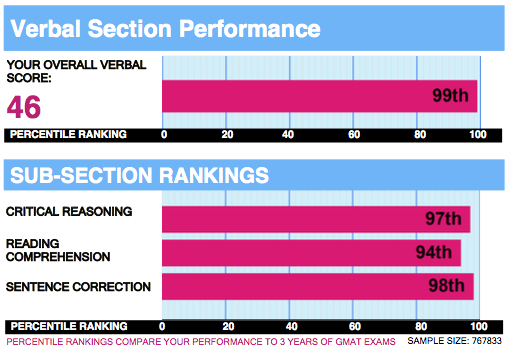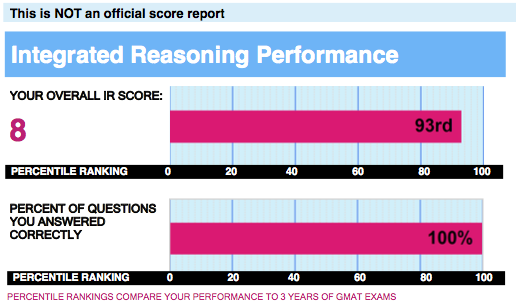Events & Promotions
|
|

GMAT Club Daily Prep
Thank you for using the timer - this advanced tool can estimate your performance and suggest more practice questions. We have subscribed you to Daily Prep Questions via email.
Customized
for You
Track
Your Progress
Practice
Pays
Not interested in getting valuable practice questions and articles delivered to your email? No problem, unsubscribe here.
- Nov 20
07:30 AM PST
-08:30 AM PST
Learn what truly sets the UC Riverside MBA apart and how it helps in your professional growth - Nov 20
01:30 PM EST
-02:30 PM IST
Learn how Kamakshi achieved a GMAT 675 with an impressive 96th %ile in Data Insights. Discover the unique methods and exam strategies that helped her excel in DI along with other sections for a balanced and high score. - Nov 22
06:30 AM PST
-08:30 AM PST
Let’s dive deep into advanced CR to ace GMAT Focus! Join this webinar to unlock the secrets to conquering Boldface and Paradox questions with expert insights and strategies. Elevate your skills and boost your GMAT Verbal Score now! - Nov 22
11:00 AM IST
-01:00 PM IST
Do RC/MSR passages scare you? e-GMAT is conducting a masterclass to help you learn – Learn effective reading strategies Tackle difficult RC & MSR with confidence Excel in timed test environment - Nov 23
11:00 AM IST
-01:00 PM IST
Attend this free GMAT Algebra Webinar and learn how to master the most challenging Inequalities and Absolute Value problems with ease. - Nov 24
07:00 PM PST
-08:00 PM PST
Full-length FE mock with insightful analytics, weakness diagnosis, and video explanations! - Nov 25
10:00 AM EST
-11:00 AM EST
Prefer video-based learning? The Target Test Prep OnDemand course is a one-of-a-kind video masterclass featuring 400 hours of lecture-style teaching by Scott Woodbury-Stewart, founder of Target Test Prep and one of the most accomplished GMAT instructors.
jgordon257
Joined: 30 Nov 2017
Last visit: 22 Aug 2018
Posts: 5
Given Kudos: 2
Location: United States (CO)
Concentration: Strategy, Healthcare
Schools: Booth '20 (WD) Ross '20 (WD) CBS '20 (D) HBS '20 (D) Kellogg '20 (D) Haas '20 (D) Wharton '20 (M) Stanford '20 (D)
GMAT 1: 680 Q48 V35

GMAT 2: 770 Q49 V46

GPA: 3.41
Schools: Booth '20 (WD) Ross '20 (WD) CBS '20 (D) HBS '20 (D) Kellogg '20 (D) Haas '20 (D) Wharton '20 (M) Stanford '20 (D)
GMAT 2: 770 Q49 V46

Posts: 5
Kudos
Bookmarks
What a day today has been!
I just took the GMAT this afternoon and landed a 770. I literally couldn't believe the computer screen when I saw it, and only realized that it was real when I received my print out.
Wanted to share with the community how I prepared, how I approached test day, etc.
Test 1: 10/16/17
Prep: ~2 months, primarily using MPrep materials as well as the MPrep online accelerated group course. I found the group course to be pretty unhelpful for trying to achieve top-level scores, and it seemed that the instructors were more keen on playing "gotcha" with the students than teaching us the foundational principles of GMAT. Two weeks before the test, my diagnostics were coming in in the mid 600's (and had actually been sliding from 690-660 over my prep period) so I was seriously concerned. I did every single problem in the quant books for MPrep (all the problem sets at the back of each chapter) over those last two weeks and scored a 680 (48Q/35V) on the test.
Test 2: 11/29/17
Prep: ~6 weeks, primarily with Brian McElroy of (@mcelroytutoring). We focused on SC and CR... I was already doing well on RC and my quant was in a good spot, so those two were the main focus. ~6 hours of tutoring with him, just about weekly, with plenty of homework and practice problems in between. We had a good dialogue over the ~5 weeks we worked together and I found his instruction incredibly valuable. I re-did all of the math problems from the MPrep books again over the final two weeks before test day (if it ain't broke, don't fix it!). My score this time around was much higher. 770 (49Q/46V). My verbal went up 11 points due to my work with Brian. I was fortunate to have that extra +1 on Quant, but to be honest I really didn't put a lot of time into that section this time around (beyond re-doing all those problem sets, the only other thing I did was review old practice test problems that I had gotten wrong).
Test day strategy:
V/Q/IR/AWA
I knew Verbal was my strong suit this time around and used that to my advantage to go into quant with confidence.
I'm definitely not an early-bird, so felt very comfortable taking the test around 12:30PM. I kept all carbs out of my food for the day (eggs, "protein waffle", etc.) so that I had no blood sugar swings; that's the easiest way to get tired and crash. I then consumed mushroom coffee (lions mane+chaga+40mg caffeine), a cordycep mushroom supplement, and, of all things, a pre-workout shake that I make consisting of creatine+ginseng+BCAAs+1,000mg of taurine. I drank half that pre-workout before the test and half immediately during my first break. (Ghost Lifestyle Size + Ghost Lifestyle Amino). Between all of those adaptogens and stimulants, there was no way I was losing focus during the test.
I'm still internalizing the fact that I actually got this score. I can't thank Brian enough for his help leading up to test 2. Hopefully this test day experience is helpful for those who are preparing to take the test. Now on to B-school applications!
I just took the GMAT this afternoon and landed a 770. I literally couldn't believe the computer screen when I saw it, and only realized that it was real when I received my print out.
Wanted to share with the community how I prepared, how I approached test day, etc.
Test 1: 10/16/17
Prep: ~2 months, primarily using MPrep materials as well as the MPrep online accelerated group course. I found the group course to be pretty unhelpful for trying to achieve top-level scores, and it seemed that the instructors were more keen on playing "gotcha" with the students than teaching us the foundational principles of GMAT. Two weeks before the test, my diagnostics were coming in in the mid 600's (and had actually been sliding from 690-660 over my prep period) so I was seriously concerned. I did every single problem in the quant books for MPrep (all the problem sets at the back of each chapter) over those last two weeks and scored a 680 (48Q/35V) on the test.
Test 2: 11/29/17
Prep: ~6 weeks, primarily with Brian McElroy of (@mcelroytutoring). We focused on SC and CR... I was already doing well on RC and my quant was in a good spot, so those two were the main focus. ~6 hours of tutoring with him, just about weekly, with plenty of homework and practice problems in between. We had a good dialogue over the ~5 weeks we worked together and I found his instruction incredibly valuable. I re-did all of the math problems from the MPrep books again over the final two weeks before test day (if it ain't broke, don't fix it!). My score this time around was much higher. 770 (49Q/46V). My verbal went up 11 points due to my work with Brian. I was fortunate to have that extra +1 on Quant, but to be honest I really didn't put a lot of time into that section this time around (beyond re-doing all those problem sets, the only other thing I did was review old practice test problems that I had gotten wrong).
Test day strategy:
V/Q/IR/AWA
I knew Verbal was my strong suit this time around and used that to my advantage to go into quant with confidence.
I'm definitely not an early-bird, so felt very comfortable taking the test around 12:30PM. I kept all carbs out of my food for the day (eggs, "protein waffle", etc.) so that I had no blood sugar swings; that's the easiest way to get tired and crash. I then consumed mushroom coffee (lions mane+chaga+40mg caffeine), a cordycep mushroom supplement, and, of all things, a pre-workout shake that I make consisting of creatine+ginseng+BCAAs+1,000mg of taurine. I drank half that pre-workout before the test and half immediately during my first break. (Ghost Lifestyle Size + Ghost Lifestyle Amino). Between all of those adaptogens and stimulants, there was no way I was losing focus during the test.
I'm still internalizing the fact that I actually got this score. I can't thank Brian enough for his help leading up to test 2. Hopefully this test day experience is helpful for those who are preparing to take the test. Now on to B-school applications!
mcelroytutoring
 Expert
Expert
Tutor
Joined: 10 Jul 2015
Last visit: 15 Nov 2025
Posts: 1,204
Given Kudos: 282
Status:Expert GMAT, GRE, and LSAT Tutor / Coach
Affiliations: Harvard University, A.B. with honors in Government, 2002
Location: United States (CO)
Age: 45 (10 years and counting on GMAT Club!)
GMAT 1: 770 Q47 V48

GMAT 2: 730 Q44 V47

GMAT 3: 750 Q50 V42

GMAT 4: 730 Q48 V42 (Online)

GRE 1: Q168 V169

GRE 2: Q170 V170

Expert reply
Originally posted by mcelroytutoring on 30 Nov 2017, 19:31.
Last edited by mcelroytutoring on 20 Mar 2018, 21:08, edited 1 time in total.
Last edited by mcelroytutoring on 20 Mar 2018, 21:08, edited 1 time in total.
Kudos
Bookmarks
Congratulations, and I'm happy to have helped, jgordon257! 11 points improvement on Verbal in only 5 weeks is an incredible jump. Of course, it's not my success; it's yours! You did all the work--I just gave 6 hours of focused advice via Skype.
Other GMAT clubbers will surely find your "test-day high-focus diet" to be useful, so thanks for sharing that information with the community in such a specific manner.
I'm glad that a San Diego guy was able to help a Colorado / New York City dude ace his GMAT, thanks to the magic of the internet. Best of luck with your applications--you will find GMAT Club useful for that purpose as well.
p.s. Welcome to the 99% club! https://gmatclub.com/forum/99-ile-clubbers-add-your-name-to-the-list-77041.html
Other GMAT clubbers will surely find your "test-day high-focus diet" to be useful, so thanks for sharing that information with the community in such a specific manner.
I'm glad that a San Diego guy was able to help a Colorado / New York City dude ace his GMAT, thanks to the magic of the internet. Best of luck with your applications--you will find GMAT Club useful for that purpose as well.
p.s. Welcome to the 99% club! https://gmatclub.com/forum/99-ile-clubbers-add-your-name-to-the-list-77041.html
jgordon257
Joined: 30 Nov 2017
Last visit: 22 Aug 2018
Posts: 5
Given Kudos: 2
Location: United States (CO)
Concentration: Strategy, Healthcare
Schools: Booth '20 (WD) Ross '20 (WD) CBS '20 (D) HBS '20 (D) Kellogg '20 (D) Haas '20 (D) Wharton '20 (M) Stanford '20 (D)
GMAT 1: 680 Q48 V35

GMAT 2: 770 Q49 V46

GPA: 3.41
Schools: Booth '20 (WD) Ross '20 (WD) CBS '20 (D) HBS '20 (D) Kellogg '20 (D) Haas '20 (D) Wharton '20 (M) Stanford '20 (D)
GMAT 2: 770 Q49 V46

Posts: 5
Kudos
Bookmarks
Proof of the scores and the improvement.
Attachments
IMG_0714.jpg [ 1.61 MiB | Viewed 10219 times ]







